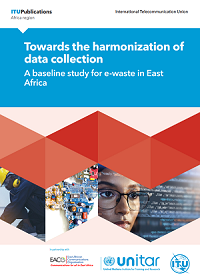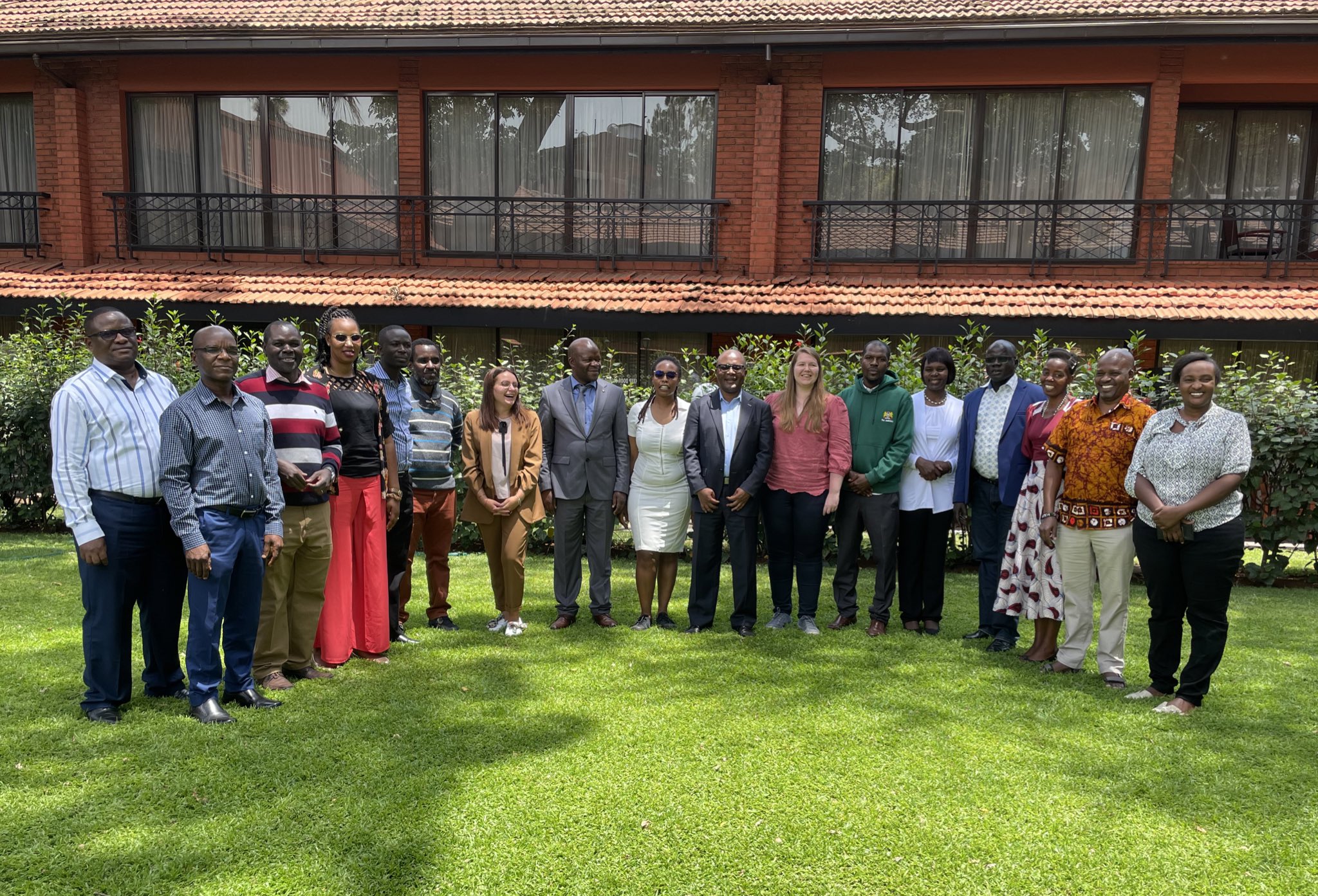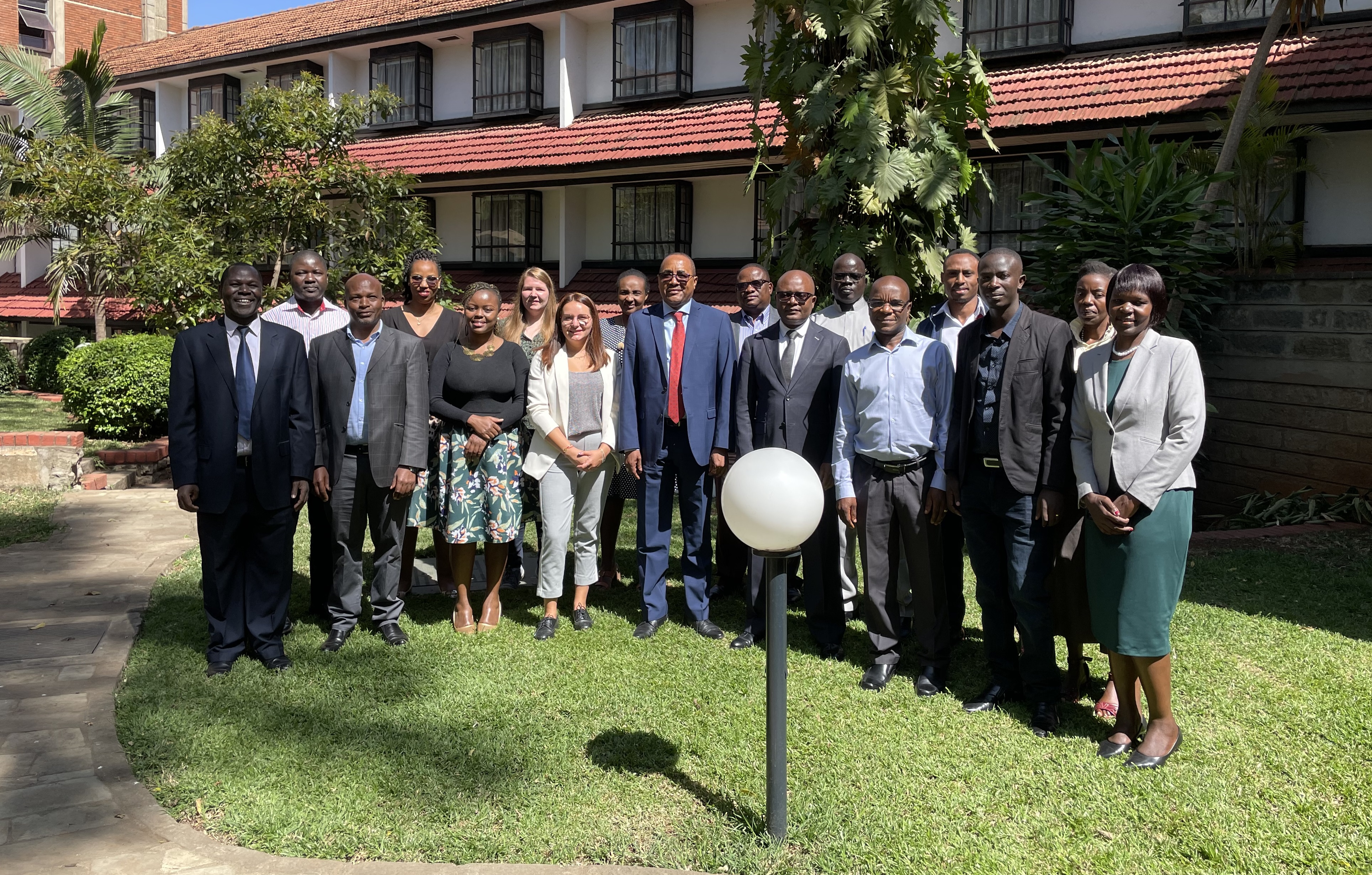
The East Africa Communications Organisation (EACO) has developed a Regional E-waste Management Strategy. The goal of the strategy is to achieve a sustainable e-waste management system in the EACO member states, and a harmonized monitoring framework for e-waste. The EACO member states comprise of Tanzania, Rwanda, Uganda, Burundi, Kenya and South Sudan.
In collaboration with the EACO secretariat, ITU and the UNITAR-SCYCLE Programme - founding partners of the
Global E-waste Statistics Partnership (GESP) - provided technical assistance to EACO member states through the 'EACO Regional E-waste Data Harmonization' project. The project supports the relevant strategic actions of the Regional E-waste Management Strategy, notably to track progress and its achievement and to harmonize the collection of e-waste data regionally. This will eventually result in a central database on e-waste within the EACO secretariat.
The project ran from the March 2021 to December 2022 and focused on the following key activities:
- Harmonized surveys: developing regional baseline surveys for households and businesses.
- Inception training: supporting national statistics bodies to collect and improve e-waste data and statistics in a harmonized manner.
- Regional trial: trailing the harmonized household and business surveys in each of the 6 EACO member states.
- Validation training: validating country data through comparing and learning from preliminary results.
- Publication: publishing an East Africa E-waste Baseline study focuses on survey and training results.
Publication

| This collaborative study “Towards the harmonization of data collection - A baseline study for e-waste in East Africa” between the International Telecommunication Union (ITU) and the United Nations Institute for Training and Research Sustainable Cycles Programme (UNITAR-SCYCLE) in partnership with the East African Communications Organisation (EACO) aims to enhance the quality, collection, and interpretation of e-waste data in East Africa, specifically in Burundi, Kenya, Rwanda, South Sudan, Tanzania, and Uganda. These countries have made strides in addressing e-waste management issues through regional strategies and policies. However, the need for improved data and statistics persists. This study is an output of the EACO Regional E-waste Data Harmonization project.
The study employs two data collection methods. The first calculates data on electrical and electronic equipment (EEE) placed on the market and the amount of e-waste generated, primarily using national data. The second approach involves household and business surveys in Burundi and Kenya, shedding light on EEE possession and disposal habits. For example, mobile phone possession rates are high in both countries, and disposal routes for equipment vary. There's a significant increase in EEE placed on the market in East Africa, leading to a surge in e-waste generation, posing challenges due to limited recycling infrastructure. The usage of the EEE POM and e-waste generated tools by the representatives of the countries participating in the project revealed that EEE POM in East Africa has been rising rapidly in the past years, hitting 170 kilotonnes (kt) in 2021. The rapid increase of EEE POM has caused an increase of e-waste generated in the region, which reached 128 kt in 2021. The rapid increase of e-waste generated represents a challenge in a region where the availability of e-waste recycling infrastructure is limited.
|
Events
- East Africa Survey and Data Inception Workshop, 27 - 28 September 2021 (Agenda)
- East Africa Regional E-waste Data Validation Workshop, 11 - 14 October 2022, Nairobi, Kenya (Agenda, Overview presentation)


Data Validation Workshop in Nairobi, Kenya, October 2022 with project focal points from Tanzania, Rwanda, Uganda, Burundi, Kenya and South Sudan.